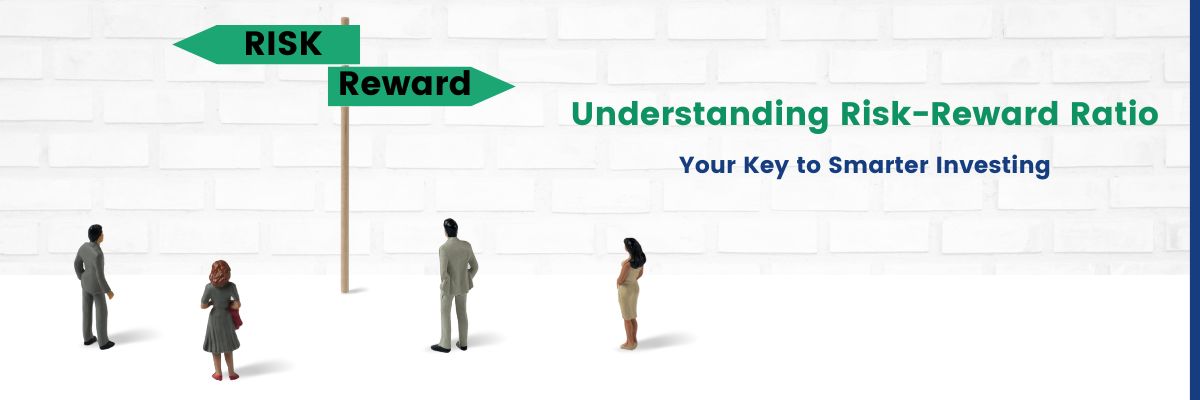One effective strategy for accumulating wealth over the long term is to invest in the stock market. However, the road to riches is not a short one. It takes patience, discipline, and a long term perspective. When you invest in stocks or other securities with the intention of holding onto them for a considerable duration, generally five years or more, you're engaging in long-term investing. If you're looking for the best share for long-term investment, consider doing a thorough research and seek professional advice through a financial advisor before making any decisions. This type of investing allows for greater potential returns and a lower risk of loss. In this blog, we'll explore the benefits of long-term investing, how it works, and the best investment options available in India today.
What are long-term investments and how many years are considered as long-term investments?
Long term investments are investments that are held for an extended period, typically five years or more. These investments are typically made in stocks, mutual funds, real estate, or other securities. The length of time that an investment is considered long term may vary based on the asset class and the investor's goals. For example, real estate investments are often considered long-term investments if held for at least five years, while stocks and mutual funds may require a longer investment horizon of 10 or more years to generate substantial returns.
Why are long term investments good? Why should you invest long term?
Long-term investments are a good way to build wealth over time because they allow for the benefits of compounding. Compounding is the process by which an investment's earnings are reinvested over time to generate even greater returns. The longer an investment is held, the more compounding can work in an investor's favor. Long term investments also allow for greater potential returns because they give the markets time to recover from short-term fluctuations.
One more advantage of long term investing is that it can help counter inflation by generating returns that outpace the rate of inflation. Inflation refers to the rise in the prices of goods and services over time, which means that the purchasing power of money decreases. Therefore, if an investment generates returns that are less than the rate of inflation, the investor's purchasing power will decrease.
However, by investing in assets that generate returns that exceed the rate of inflation, investors can protect their purchasing power and even increase it over time. For example, long term investments such as stocks, real estate, and certain mutual funds have historically generated returns that outpace inflation.
The compounding benefit of long term investments allows investors to earn returns not only on their initial investment but also on their returns over time. The longer an investment is held, the more compounding can work in an investor's favor. For example, if an investor invests Rs. 1 lakh in a stock that generates a 10% annual return, the investment will be worth Rs. 2.59 lakh after 10 years. However, if the investor reinvests the earnings, the investment will be worth Rs. 4.17 lakh after 20 years. Thus, compounding is a powerful tool for long term investors, as it can generate significant returns over time, magnify returns, and further counter the impact of inflation.
Additionally, long-term investments can help investors avoid emotional decision-making. By taking a long term perspective, investors can ride out market volatility and avoid making rash decisions based on short-term market movements. By investing in high-quality long term investments that generate returns that outpace inflation, investors can protect their purchasing power and achieve their long-term financial goals, such as preparing for retirement or funding their child's education.
Are long term investments safe, and how do they work?
While no investment is completely risk-free, long-term investments are generally considered safer than short term investments. This is because the longer an investor holds an investment, the more likely it is to recover from short-term market fluctuations. Additionally, long-term investors can diversify their portfolios to reduce risk and increase potential returns. However, it is important to note that investing always involves some degree of risk, and investors should always do their due diligence before making any investment decisions.
Long term investments allow investors to buy stocks or other securities at a lower price and hold onto them for an extended period of time. As the company or fund grows, the value of the investment also increases, generating returns for the investor. Dividend payments, which are sums of money that businesses give to their shareholders, can also be advantageous to long-term investors.
How do SIPs help build a long-term investment portfolio?
Systematic Investment Plans (SIPs) are a great way to build a long term investment portfolio. Through the use of Systematic Investment Plans (SIPs), investors can make consistent investments by depositing a fixed amount of money at regular intervals, such as monthly or quarterly. By investing a fixed amount of money at regular intervals, investors can take advantage of market fluctuations and build their portfolios over time. Don't wait any longer; start a SIP today to begin your journey toward building long-term wealth.
What precautions should one take while building a long term investment portfolio?
While long term investing can be a great way to build wealth over time, there are several precautions investors should take when building their portfolios. Firstly, diversifying your investments across multiple asset classes, such as stocks, mutual funds, and real estate, is a critical step to managing risk and potentially enhancing returns.
Secondly, before buying shares for long term investment, investors should do their due diligence before investing in any such shares. This includes researching the company's financials, management, and growth potential. Investors should also keep an eye on market trends and be willing to adjust their portfolios as needed.
Finally, investors should have a long term perspective and avoid making emotional decisions based on short term market movements. By staying disciplined and patient, investors can build a portfolio that will generate significant returns over time.
What is the impact of taxation on long term investment in the current scenario?
In India, long term capital gains on equities are taxed at 10% if the gains exceed Rs. 1 lakh in a financial year. This has been a cause of concern for some investors, as it reduces the potential returns on long-term investments. However, it's important to remember that taxes are a necessary part of investing, and investors should always consider the after-tax returns on their investments.
What are the best long term investment options available in India in the current scenario?
There are several great long-term investment options available in India today. Some of the best options include:
Stocks: Investing in individual stocks can be a great way to build wealth over time. However, it's important to do your due diligence and invest in best stocks for long term investment with strong fundamentals. If you looking out for long term investment stocks then here are some high-quality stocks that you can be considered for long-term investments viz. HDFC Bank, Reliance, Tata Motors, LT, TCS, INFY, ICICIBANK, DMART, CIPLA, APOLLO Hospitals etc. So open a demat cum trading account now, download “GEPL Pro Markets” - our ultimate mobile trading app, and start investing.
Mutual funds: Mutual funds are professionally managed investment portfolios that allow investors to diversify their investments across a range of securities. There are several great mutual funds available in India today that are designed for long-term investors. Here are the best mutual funds to invest in for long term based on their categories;
(1) Smallcap Funds: Nippon India Smallcap Fund, Quant Smallcap Fund, SBI Smallcap Fund.
(2) Midcap Funds: Kotak Emerging Equity Fund, Nippon India Growth Fund, and Mirae Asset Midcap Fund.
(3) Flexicap Funds: HDFC Flexicap Fund, PPFAS Flexicap Fund.
(4) Multicap Funds: Nippon India Multicap Fund, Bandhan Multicap Fund, and SBI Multicap Fund.
(5) Large & Midcap Funds: ICICI Pru Large & Midcap Fund, SBI Large and Midcap Fund, and HDFC Large and Midcap Fund.
(6) Largecap Funds: ICICI Pru Bluechip Fund, Nippon India Largecap Fund, Canara Robeco Bluechip Fund.
So, don’t wait; start investing in mutual funds today with GEPL Capital Online - your gateway to financial freedom, and watch your money grow.
Real Estate: Real estate can be a great long-term investment, particularly in areas with high population growth and strong economic fundamentals. However, real estate investment demands a substantial amount of capital and expertise.
Public Provident Fund (PPF): The PPF is a government-backed savings scheme that offers tax-free returns and a long-term investment horizon of 15 years.
Concluding thoughts
Building a successful long-term investment portfolio requires patience, discipline, and a long-term perspective. With the convenience of opening a Demat cum Trading Account and the powerful features of "GEPL Pro Markets," our online mobile trading app, investors can easily invest in high-quality securities, diversify their portfolios, and take advantage of compounding to generate significant returns over time. By doing their due diligence, keeping an eye on market trends, and avoiding emotional decisions based on short-term market movements, investors can achieve their financial goals and experience the joy of financial freedom. To capitalize on short-term gains in India, also consider investing in the 5 best stocks for 2023, after careful analysis and consultation with financial advisors. Contact us to learn more and download "GEPL Pro Markets" today.
Before investing, don't forget to read the disclaimer - it's a small step that can save you from big surprises!








